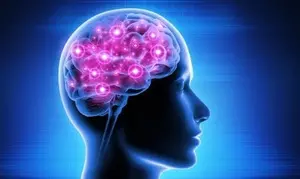Study finds memory may depend on how hard brain had to work

New Delhi: Have you ever wondered why your brain selects certain experiences to remember amidst an overload of information?
It depends on how hard the brain has to work, according to a study.
To understand, researchers at Yale University in the US explored visual information that is memorable "by pairing a computational model of scene complexity with a behavioral study".
The presented computational model suggests a mechanism by which hippocampal replay aids in training generative models, such as variational autoencoders, to reconstruct sensory experiences using latent variable representations from various brain regions including the entorhinal cortex, medial prefrontal cortex, and anterolateral temporal cortices via the hippocampal formation. This model aligns with previous models on the effects of memory age and hippocampal lesions but extends to explain phenomena like imagination, episodic future thinking, and relational inference, offering insights into how memories integrate unique sensory details with schema-based predictions. It highlights how the hippocampus and neocortex work together to store and reconstruct elements of memories, optimizing hippocampal storage by focusing on novel and unique information, thereby supporting a broad range of cognitive functions including memory construction and consolidation.
The findings reported in the journal Nature Human Behavior showed that the brain may not remember a predictable event.
"The mind prioritizes remembering things that it is not able to explain very well," said Ilker Yildirim, Assistant Professor of Psychology in Yale’s Faculty of Arts and Sciences.
"If a scene is predictable and not surprising, it might be ignored."
The team designed a series of experiments in which people were asked if they remembered specific images from a sequence of natural images shown in rapid succession. They found that the harder it was for the computational model to reconstruct an image, the more likely the image would be remembered by the participants.
"We used an AI model to try to shed light on perception of scenes by people -- this understanding could help in the development of more efficient memory systems for AI in the future," said John Lafferty, Professor of Statistics and Data Science at Yale.


